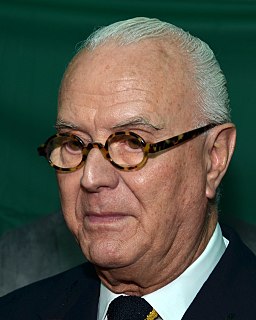A Quote by Sara Bareilles
I have a tendency to become very self-critical.
Related Quotes
The mainspring of creativity appears to be the same tendency which we discover so deeply as the curative force in psychotherapy, man's tendency to actualize himself, to become his potentialities. By this I mean the organic and human life, the urge to expand, extend, develop, mature - the tendency to express and activate all the capacities of the organism, or the self.
A musician must make music, an artist must paint, an poet must write, if he is to be ultimately at peace with himself. What a man can be, he must be. This weed we call self-actualization….It refers to man’s desire for self-fulfillment, namely to the tendency for him to become actually in what he is potentially: to become everything one is capable of becoming.
Each of us is born with two contradictory sets of instructions: a conservative tendency, made up of instincts for self-preservation, self-aggrandizement, and saving energy, and an expansive tendency made up of instincts for exploring, for enjoying novelty and risk-the curiosity that leads to creativity belongs to this set. But whereas the first tendency requires little encouragement or support from outside to motivate behaviour, the second can wilt if not cultivated.
For Fanon, becoming actional is connected to his idea of a new humanism, which is explicitly critical of European humanism so intimately connected with colonialism. So, it is not simply about finding new concepts from anywhere, but being both critical and self-critical and also being very open to what is happening on the ground.
The hunger [to success] is the same, no matter what it is that you're doing. It's like an unquenchable thirst to learn more, or to feel like you could have done more, and to be brutally honest and self critical, which is very hard to do. It's easy, and human nature is to just blame somebody else. It's very, very hard to self assess.
If Martin Luther King looked at the Obama administration and saw an intimate connection with Wall Street, he'd be very critical. If he saw drones being dropped on innocent people, he'd be very critical. If he saw rights and liberties violated by secret policies of the government, of the kind we've seen by the National Security Agency, he'd be very critical.




































